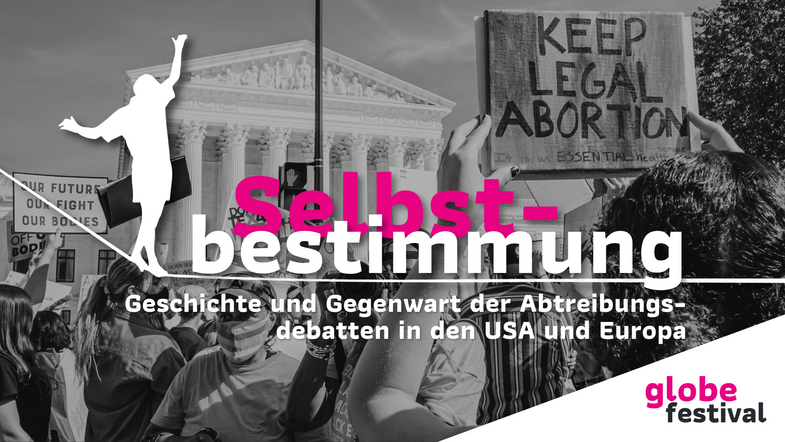Discussion
Self-determination: the History and Present of the Abortion Debates in the USA and Europe
The panel will look at the global and historical dimensions of women's access to abortion and what happens when this right is restricted or abolished. We will discuss the impact of such changes, including during German reunification, and how the removal or restriction of abortion rights affects women's experiences today. What can we learn about precarious freedom from a global perspective on abortion and its political relevance?
With:
- Luisa Klatte, doctoral candidate, Institute of Slavonic Studies, Leipzig University
- Irene Maffi, professor of social anthropology, Institute of Social Sciences, University of Lausanne
- Moderation: Megan Maruschke, junior professor of Global Studies, Global and European Studies Institute, Leipzig University
Recently, we have seen new rights for women's access to abortion emerging in Europe and Latin America, and in some contexts, especially in certain U.S. states, increased restrictions. In Europe, abortion has become more politically relevant, including in Germany, although the current coalition government has not removed the procedure from the criminal code, as recommended by its own commission. In the U.S., the issue is highly debated in the upcoming elections, becoming one of the key issues motivating voters, and laws guaranteeing access to abortion are on the ballot in several states after the U.S. Supreme Court overturned a case that ensured a federal minimum of access to the procedure in all fifty states and territories. Securing the right to this medical treatment in pregnancy has not been a linear historical process, with different histories in different regions of the world and even within societies.
This panel will explore what happens when this right is taken away or restricted in other ways. For example, how did women experience the restriction of this right during German reunification? Does studying cases where formal rights were removed or where restrictions and lack of access prevented women from accessing the procedure help us to explore the consequences for women and their experiences in other contexts today? What can we learn about precarious freedom from a global perspective on abortion?
- Organized in cooperation with the Global and European Studies Institute of the University of Leipzig and the Centre for the Study of France and the Francophone World of the University of Leipzig
